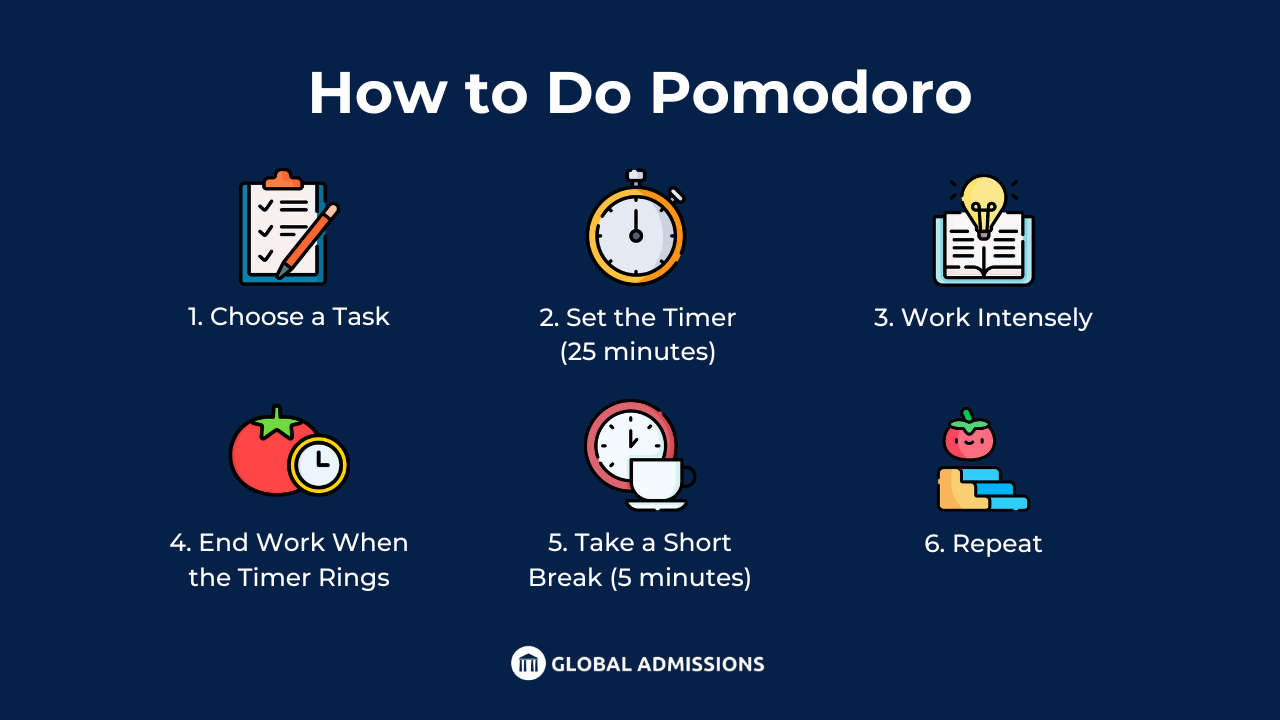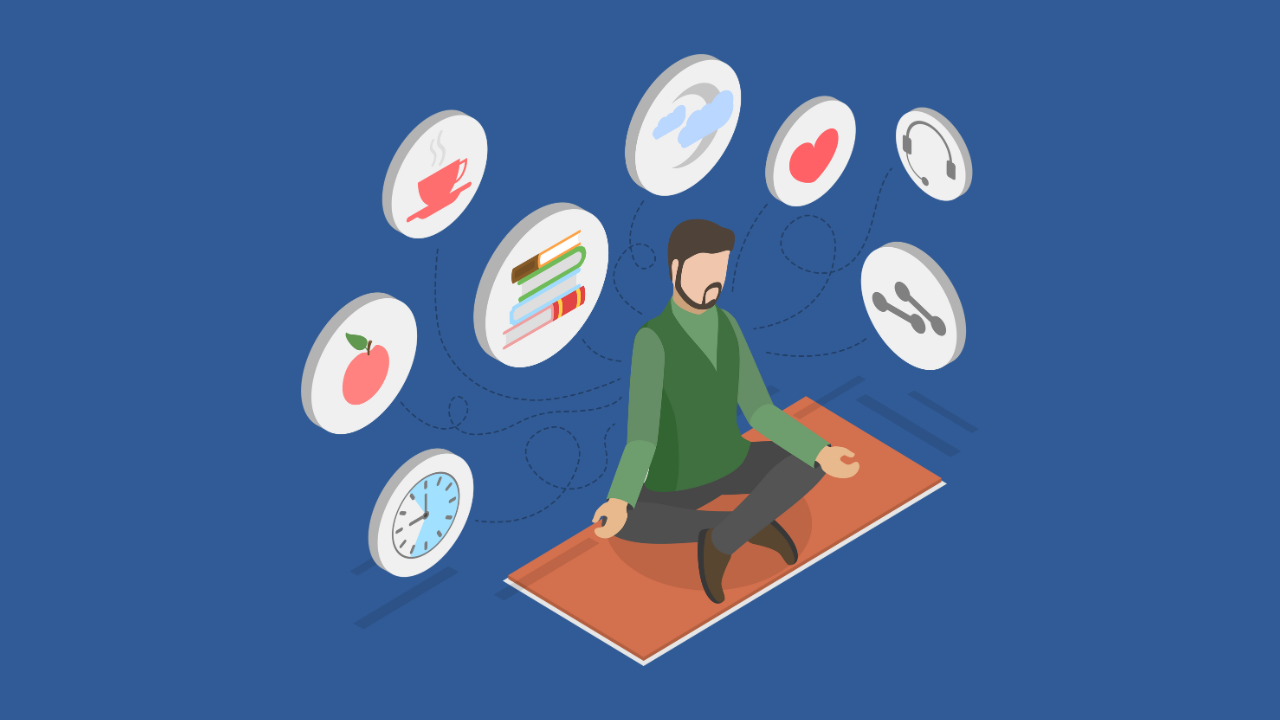Are you also having a hard time staying focused on one thing and staying productive? Especially when your exams are near and you need to focus on your studies, but there are so many distractions and you don’t know how to study effectively?
In today’s fast-paced academic environment, developing a personalized study routine that works for you is crucial for success. Whether you're preparing for exams, completing assignments, or simply trying to absorb new information, these practical tips can help you create a focused study plan that aligns with your personal learning style and goals.
Practical Tips:
- Identifying an Optimal Learning Environment
- Setting Clear, Achievable Goals
- The Journey to Effective Studying
- Developing Effective Study Habits
- Maintaining Physical and Mental Health
- Leveraging Technology Wisely
Identifying an Optimal Learning Environment
Selecting the right location is crucial for minimizing distractions and creating a conducive study environment. It's essential to choose a quiet area with good lighting—be it a library, a home office, or a cafe known for its calm ambiance. The study area should be kept tidy and organized, as a cluttered space can lead to a cluttered mind.
Also, the choice between complete silence and a consistent background noise depends on personal preference, with the goal being to create an environment that enhances focus.
Setting Clear, Achievable Goals
Effective study begins with setting specific, realistic goals for each session. This approach involves detailing exactly what one intends to accomplish, whether it’s mastering a particular concept or completing a set number of pages.
Breaking larger tasks into smaller, manageable segments can prevent feelings of overwhelm and provide a clear roadmap to success.
Techniques like the Pomodoro Technique—studying in intervals of 25 minutes followed by a 5-minute break—can help maintain concentration and stamina over longer periods.

The Journey to Effective Studying
Many students struggle with maintaining focus, often finding themselves distracted by non-essential activities such as social media or gaming. The transition from a less structured environment to a demanding academic setting, such as starting university after several years of working, can highlight the need for efficient study strategies.
Through trial and error, strategies such as the Pomodoro Technique and listening to specific study music playlists have proven effective. These methods not only help in keeping the mind engaged but also in managing time efficiently, which can lead to significant improvements in academic performance.
Developing Effective Study Habits
Adopting active learning techniques is critical for deeper engagement with material. Methods such as summarizing information, teaching concepts to others, and applying theories practically are highly effective for understanding and retention.
Regular reviews, employing tools like flashcards and mind maps, help solidify knowledge and are essential for long-term retention.
Maintaining Physical and Mental Health
Integrating regular breaks and physical activity into a study routine is vital for mental acuity and overall health. Short breaks allow the mind to rest, and adding a physical component—like a quick walk or some stretching—can invigorate the body and enhance concentration.
Eating a balanced diet and staying hydrated are equally important, as they directly impact cognitive function and focus.

Leveraging Technology Wisely
Effectively managing the use of technology can greatly enhance the studying experience. Various educational apps and online platforms provide invaluable resources for practice and efficient time management. Also, there are tools specifically designed to minimize digital distractions, which are crucial for maintaining focus during study sessions.
Here are some noteworthy apps that can significantly aid your study routine:
- Quizlet: This app offers a variety of interactive study tools, including flashcards and practice tests, which are excellent for memorizing and reviewing key concepts.
- ChatGPT: Utilize this advanced AI to clarify doubts or delve deeper into complex topics. ChatGPT can break down difficult subjects into simpler terms, making them easier to understand. Always cross-check any information to ensure accuracy and reliability.
- Notion: An all-in-one organization tool that is perfect for taking class notes, managing daily tasks, and overall life organization. Its versatility makes it ideal for students who want to keep all their academic materials in one easily accessible place.
- Forest: This app helps increase your focus by discouraging the use of your phone during study times. It's particularly useful for those who find themselves frequently distracted by calls, texts, or social media.
- Spotify: A great source for finding playlists that can help maintain a good mood and sharp focus while studying. Opt for instrumental tracks as they are less likely to distract you from your work.
Finding What Works for You
"It's not always that we need to do more but rather that we need to focus on less." — Nathan W. Morris
We all agree that there is no one-size-fits-all method for effective studying. The key is to experiment with different strategies and tools to discover what works best for you.
Each student has unique needs and learning styles, so it’s important to try various approaches until you find the ones that help you maintain focus and achieve your academic goals most effectively.
With persistence and the right techniques, mastering the art of studying efficiently is within every student's reach.
Read more: Maximize Your Time With This Time Management Method 4 Career Aptitude Tests to Help You Find Your Passion and Purpose

